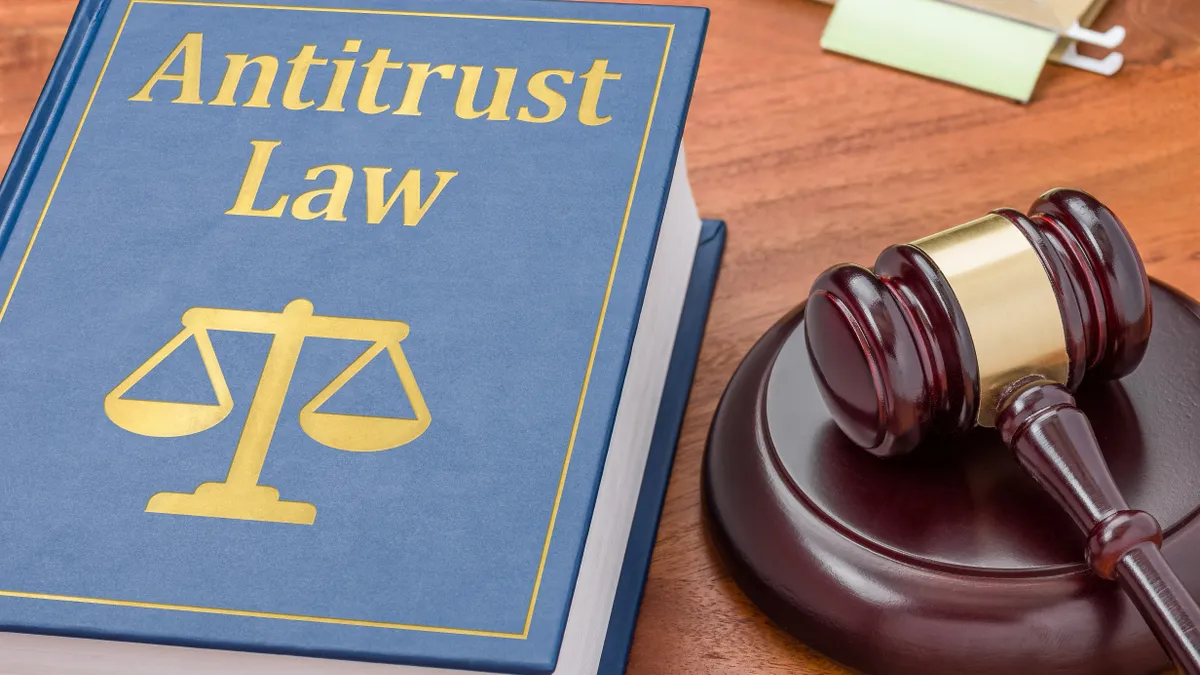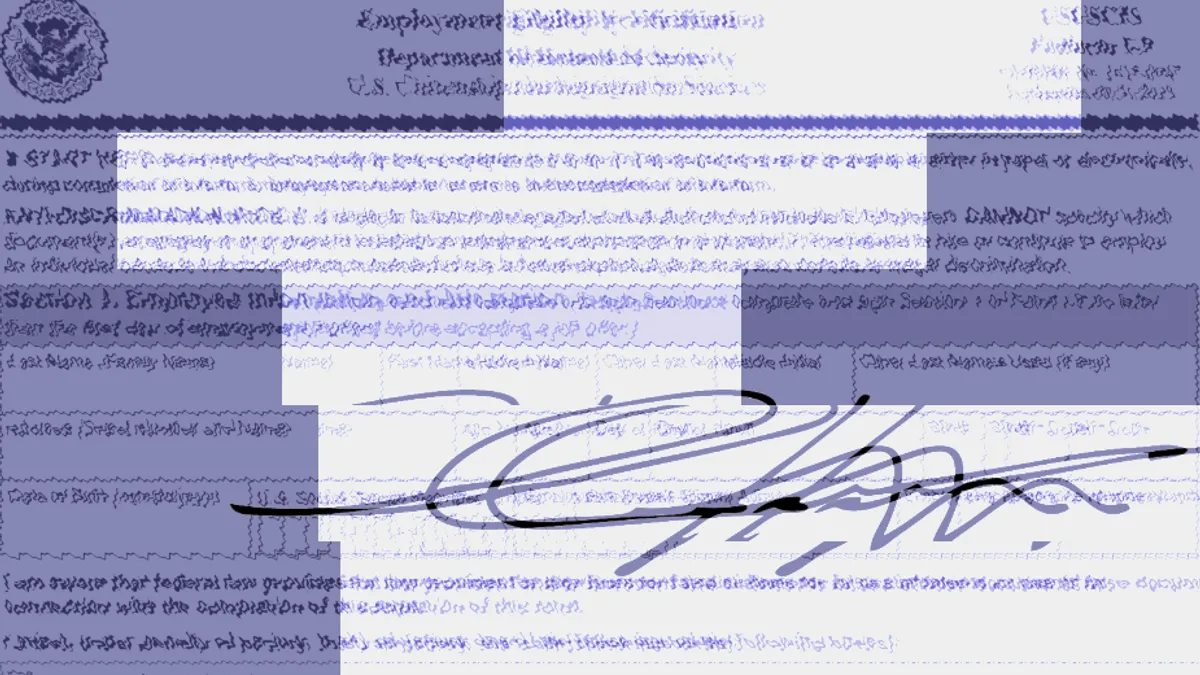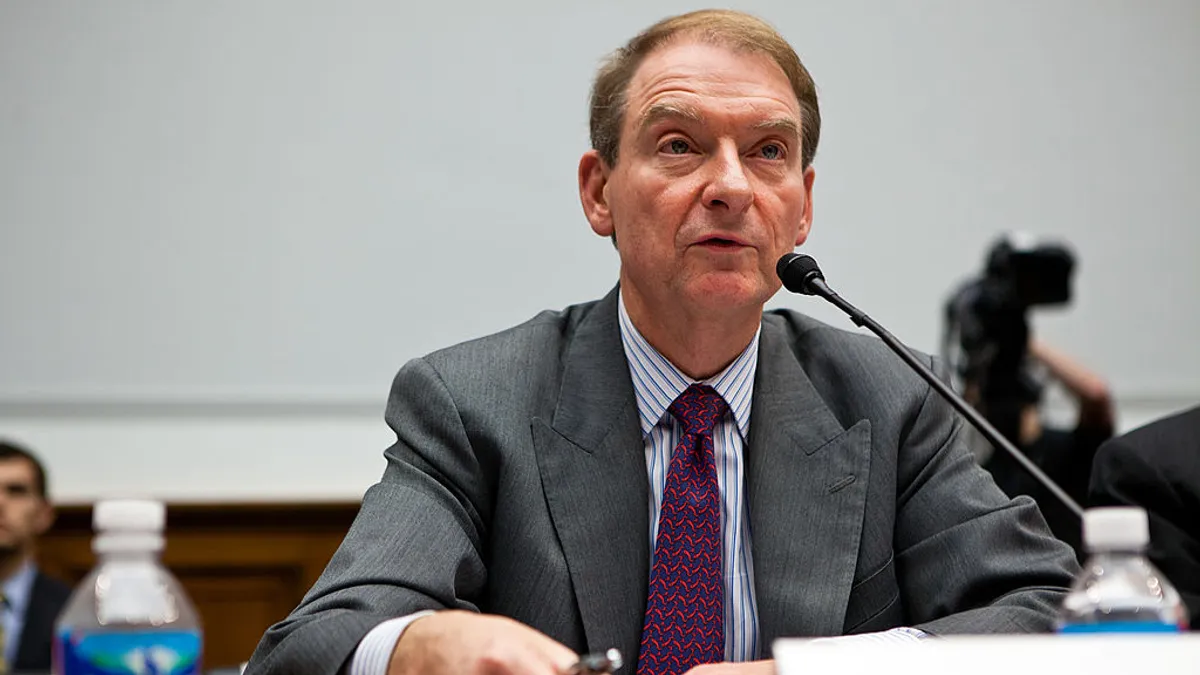You face a greater likelihood of state antitrust action against your company if it sells consumer goods or services because state attorneys general tend to focus on harms to constituents, state antitrust specialists said in a Cozen O’Connor podcast.
Antitrust is typically thought of as a function of the Federal Trade Commission and the U.S. Department of Justice, but virtually all states and territories enforce their own antitrust laws and attorneys general, along with state courts, have become more sophisticated in their efforts in recent years, said Milton Marquis of Cozen O’Connor.
“Consumer-facing companies should be aware that there is this kind of third agency that can bring national cases, the state attorneys general,” said Marquis, who specialized in antitrust in the AG offices in Massachusetts and Virginia and at DOJ before joining private practice. “State AGs have independent authority, under state and federal law, to launch investigations and bring lawsuits, so just as companies should be aware of the FTC and DOJ, they should be aware of state AGs’ independent authority.”
Range of approaches
State AGs have flexibility to bring cases in any number of ways, Marquis said. They can band together with other states, work with the federal agencies or act alone.
“You have states that are well resourced that don’t have to bring cases with other states,” he said.
And because there’s no federal preemption, a state might step in even if the FTC or DOJ decides not to move forward with an action, although that remains the exception rather than the rule.
“More often than not, the federal government and the state AG work together,” he said.
Recent action by federal agencies, along with a handful of states, to block a merger between JetBlue and Spirit Airlines, is a case in point.
State AGs, including those in Massachusetts, Maryland, Virginia and the District of Columbia, are working in tandem with the federal government because the merger could affect the cost and availability of flights to consumers in the northeast corridor.
“They’re all involved because of the impact on consumers who travel from airports located in cities [in the area],” he said. “An AG would care about that because the merger could impact those consumers.”
Upfront intentions
State AGs tend to be more transparent than the federal agencies when they initiate an investigation, so companies that cooperate upfront can find the other side willing to listen to them.
“You’ll find out earlier there may be concerns before subpoenas are issued,” said Marquis. “So, companies have the ability to tell their story. The ostrich strategy tends not to work. AGs know who you are. They know what your issues are.”
Antitrust cases tend to be document intensive, imposing a burden on in-house counsel and others in the company, to respond to civil investigative demands (CIDs). But because of states’ greater emphasis on transparency, a cooperating company can sometimes lessen the production demands.
“We’ve had some success in AG offices being receptive to deferring on requests for emails,” said Ann-Marie Luciano of Cozen O’Connor. “They may want to get an answer to something and have their request and subpoena to do that, and then we educate them: ‘Actually, what you probably could use that would answer the questions more efficiently is xyz.’ They’re open to that.”
Knowledgeable courts
Years ago it was in companies’ interest to try to get their cases heard in federal court, because state court knowledge of antitrust issues wasn’t as deep, but that distinction no longer applies, Marquis said.
“State courts have become more familiar with antitrust,” he said. “There’s also the benefit of being in your own state court.”
Even so, from a defense standpoint, a company might want to try to get its case heard in federal court, because there remain some advantages to that.
“Summary judgment standards are more pro-defense, and motions to dismiss, under Twombley, are generally easier to get,” he said.
Twombley refers to the 2007 U.S. Supreme Court decision in Bell Atlantic v. Twombly that said plaintiffs need to show more than just parallel conduct among companies to claim an effort to restrain trade.



















